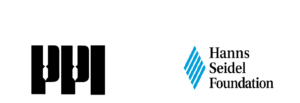By Christopher Hedreyda
CALAMBA CITY, Laguna – Local leaders, government agencies and stakeholders gathered in a flood control summit to address recurrent flooding in Laguna and craft an action plan leading to transparency in the implementation of infrastructure projects.
Organized by the Office of Laguna 1st District Rep. Ann Matibag on August 28, the summit gathered officials from the Department of Public Works and Highways (DPWH), Laguna Lake Development Authority (LLDA), Commission on Audit (COA), along with barangay captains, city officials, and community stakeholders.
“This is about taking real action—action rooted in people’s needs and aligned with the clear directive of President Ferdinand R. Marcos Jr. that all infrastructure projects must be transparent, accountable, and free from corruption,” Matibag, a co-author of House Resolution 33, principally sponsored by Biñan Lone District Rep. Arman Dimaguila, said.
The resolution calls for a review of all flood control projects along Laguna Lake to determine the need to propose a comprehensive master plan to prevent flooding.
It also seeks to study the possibility of dredging the lake to increase its holding capacity.
“Flooding is not just an inconvenience—it destroys homes, disrupts livelihoods, and puts lives at risk. We need solutions anchored in science, accountability, and transparency if we are to protect San Pedro and neighboring cities,” Matibag added.
During the summit, barangay chairpersons presented the flooding situation in their communities caused by clogged drainage systems, blocked waterways, and rising lake waters.
The DPWH Laguna 2nd District Engineering Office acknowledged the concerns raised and emphasized the importance of community inputs in designing effective solutions.
Engineer Kevin John Ycoy of DPWH said the summit provided an opportunity for the department to consult with the public before implementing projects.
He assured that thorough studies would be conducted to minimize flooding impacts, while appealing for continued public support amid ongoing controversies on flood-control projects.
“The real problem we face here is flooding. Let us stop blaming one another. Flooding cannot be resolved if we keep pointing fingers. I hope we can work on solutions, because we are open to any suggestions, if you wish to propose,” Ycoy stressed.
To complement national reforms, the summit resulted in the crafting of a zero-tolerance local action plan that involves the conduct of an independent validation such as joint audits by the DPWH, COA, and LLDA.
The plan includes transparency measures such as installation of public scorecards detailing project budgets, contractors, and timelines. The plan likewise called for the filing of administrative, civil, and criminal cases against substandard or “ghost” projects, and the blacklisting of erring contractors.
In terms of infrastructure, measures include barangay-led desilting, creek clearing, strict easement enforcement, and long-term coordination that integrates the Laguna Lakeshore Road Network (LLRN) to ensure infrastructure development balances with ecological protection and community welfare.
A second flood control summit will be organized in the city to follow-up on the status of plans and proposed projects.





